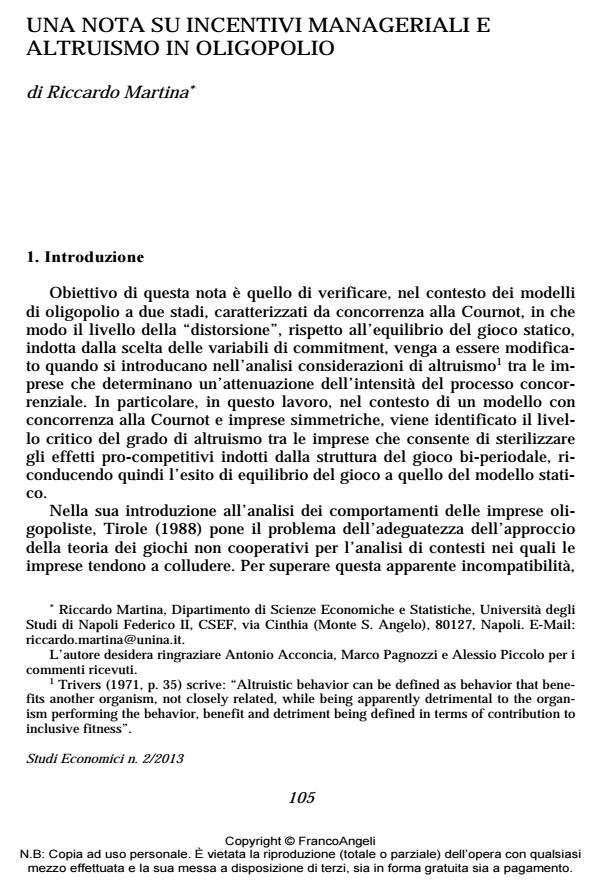Una nota su incentivi manageriali e altruismo in oligopolio
Titolo Rivista STUDI ECONOMICI
Autori/Curatori Riccardo Martina
Anno di pubblicazione 2014 Fascicolo 2013/110
Lingua Italiano Numero pagine 10 P. 105-114 Dimensione file 75 KB
DOI 10.3280/STE2013-110006
Il DOI è il codice a barre della proprietà intellettuale: per saperne di più
clicca qui
Qui sotto puoi vedere in anteprima la prima pagina di questo articolo.
Se questo articolo ti interessa, lo puoi acquistare (e scaricare in formato pdf) seguendo le facili indicazioni per acquistare il download credit. Acquista Download Credits per scaricare questo Articolo in formato PDF

FrancoAngeli è membro della Publishers International Linking Association, Inc (PILA)associazione indipendente e non profit per facilitare (attraverso i servizi tecnologici implementati da CrossRef.org) l’accesso degli studiosi ai contenuti digitali nelle pubblicazioni professionali e scientifiche
This note explores the impact of reciprocal altruism on the equilibrium outcome of a two-stage oligopoly game with managerial frms. The structure of the classical two-stage oligopoly game with managerial incentives with strategic substitutes (quantity competition) generates a typical "distortion" at equilibrium where quantities turn out to be larger than the Cournot-Nash equilibrium ones. This paper shows that when firm owners’ objective functions are defined according to a reciprocal altruism hypothesis, the Cournot outcome of the static game can be achieved despite the two stage structure of the model. This result holds true when the analysis is extended to an N symmetric firms context.
Parole chiave:Oligopoly, Altruism, Incentives, Managerial Firms, Multi-Stage Games, Delegation.
Jel codes:L13, L20.
Riccardo Martina, Una nota su incentivi manageriali e altruismo in oligopolio in "STUDI ECONOMICI " 110/2013, pp 105-114, DOI: 10.3280/STE2013-110006